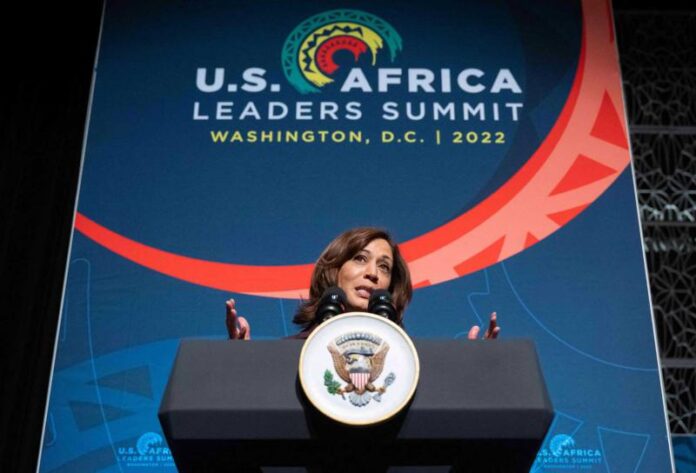
By Stacy M. Brown, NNPA Newswire Senior National Correpsondent
Building on the momentum generated at the U.S.-Africa Leaders Summit held in December 2022, the Biden-Harris Administration announced on Wednesday, July 12, that it had facilitated the closing of 75 new trade and investment deals between the United States and African countries.
According to a White House Fact Sheet, these deals have an estimated total value of $5.7 billion, bolstering economic growth and fostering shared prosperity on both continents.
Since 2021, the U.S. Government has successfully closed over 900 deals across 47 African countries, amounting to a total estimated value of $22 billion in two-way trade and investment.
The Corporate Council on Africa and the Government of Botswana hosted the U.S.-Africa Business Summit on Wednesday, July 12, where the announcement occurred.
The White House said the event showcased the significant progress in advancing trade and investment relations between the United States and Africa.
A key initiative contributing to its success is the Partnership for Global Infrastructure and
Investment (PGII), established as the Administration’s flagship infrastructure program.
Officials said the PGII had played a vital role in advancing and scaling several public and private investments across the African continent, aligning with shared priority areas such as sustainable energy, health systems, food security/agribusiness, digital connectivity, infrastructure, and finance.
During the summit, officials announced that the Biden-Harris Administration had made substantial progress in delivering on the commitments made by business and government leaders.
The commitments, totaling $15 billion, have been complemented by an additional $8 billion in private sector commitments and $1 billion in U.S. Government commitments announced during Vice President Kamala Harris’s visit to Ghana, Tanzania, and Zambia in March 2023.
Notable achievements highlighted during the most recent summit included the efforts of various agencies to facilitate trade and investment.
The Export-Import Bank of the United States (EXIM) authorized approximately $1.6 billion in transactions supporting exports to Africa, mainly focusing on renewable energy projects.
Additionally, the U.S. Trade and Development Agency (USTDA) funded eight feasibility studies, advancing the implementation of over $1 billion in digital connectivity, clean energy, and healthcare infrastructure projects on the continent.
The U.S. International Development Finance Corporation (DFC) committed nearly $110 million in financing to projects across Africa, building on their existing commitments of $2.4 billion since the beginning of the Biden-Harris Administration.
Also, through its African Digital Policy Council, the Digital Transformation with Africa (DTA) Initiative is investing $800 million to support the continent’s digital future and ensure widespread participation in the global digital economy.
In partnership with the U.S. Agency for International Development (USAID), Prosper Africa launched the Africa Tech for Trade Alliance, securing $274 million in long-term financing for affordable housing projects in West Africa.
Buyer-Supplier Partnerships also have been established across the continent, and the initiative has rolled out a Catalytic Investment Facility in collaboration with nine African funds.
The Millennium Challenge Corporation (MCC) and USAID, alongside Prosper Africa, closed a significant deal with Moroccan financial institution Tamwilcom, enabling small businesses to invest in climate-friendly projects with up to $200 million in catalyzed private investment.
Power Africa’s Health Electrification and Telecommunications Alliance (HETA), a public-private partnership, is investing $47 million to provide reliable, renewable power and mobile network access to at least 10,000 health facilities across sub-Saharan Africa.
The U.S.-Africa Clean-Tech Energy Network (CTEN), launched in December, has welcomed 24 U.S. clean-tech companies, strengthening the clean-tech ecosystem and improving energy access through power generation and newly established electricity connections.
Additionally, officials said the U.S. Small Business Administration (SBA) has also played a crucial role by approving over $9 million in export loans, supporting U.S. small businesses’ endeavors to trade with Africa.
The White House said the loans have contributed to nearly $20 million in U.S. small business goods and services sales to customers in North and Sub-Saharan Africa.
“The achievements showcased at the U.S.-Africa Business Summit demonstrate the commitment of the Biden-Harris Administration to strengthen economic ties between the United States and Africa,” administration officials stated.


